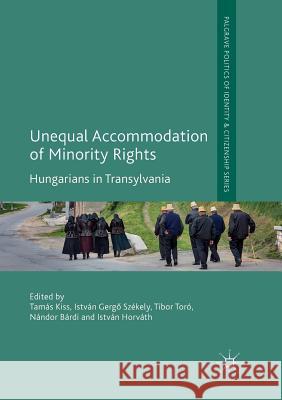Unequal Accommodation of Minority Rights: Hungarians in Transylvania » książka
topmenu
Unequal Accommodation of Minority Rights: Hungarians in Transylvania
ISBN-13: 9783030076733 / Angielski / Miękka / 2018 / 545 str.
Kategorie:
Kategorie BISAC:
Wydawca:
Palgrave MacMillan
Seria wydawnicza:
Język:
Angielski
ISBN-13:
9783030076733
Rok wydania:
2018
Wydanie:
Softcover Repri
Numer serii:
000405607
Ilość stron:
545
Waga:
0.66 kg
Wymiary:
21.01 x 14.81 x 2.9
Oprawa:
Miękka
Wolumenów:
01
Dodatkowe informacje:
Wydanie ilustrowane











